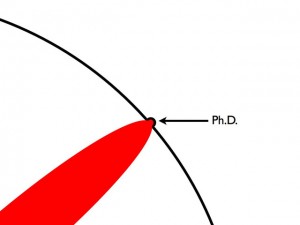Yikes, this is an awkward story. A teaching assistant mailed her students personal, nude photos of herself instead of homework answers. If it was a genuine mistake, and I assume it was, I feel for her — she’s going to get some unfortunate student feedback.
But to everyone giggling over it, I would say, grow up. Adults are sexual beings. They will have sex lives; they aren’t going to sacrifice that so students can pretend they’re all alabaster statues. This was an unfortunate error, but it doesn’t mean she’s something unusual: educated people, like your professors, tend to have rather adventurous and interesting sex experiences. They just don’t usually expose them.
But most of my cringing is reserved for the commenters at the link who are making much of the fact that the woman was of Asian descent, and are throwing around jokes built on offensive stereotypes. There is no shame in a person having sex. There ought to be quite a bit of shame in being a bigot.



